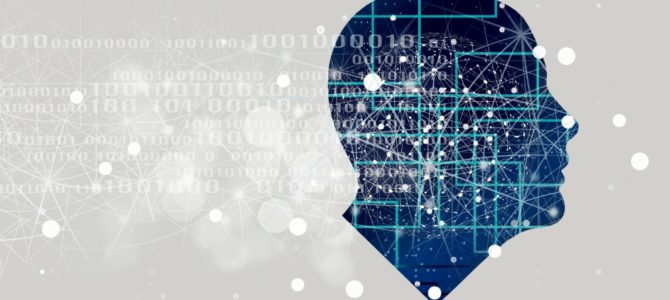
Scientism is steadily replacing traditional religion as the basis for understanding the world and our place in it. A recent essay by Noelle Garnier at The National Pulse entitled “A New American Divinity” argues persuasively that the global pandemic catalyzed a mass conversion to that secular faith.
Over a single year, millions came to “believe the Science” without question. Garnier writes: “The COVID-19 outbreak raised the authority of medical scientists … to quasi-religious dimensions.” She concludes with three critical questions: “Who is doing the science? What are their aims for the future of mankind? And what expression will scientism find when COVID-19 recedes into the past?”
A ready answer is found in the work of Israeli historian Yuval Noah Harari, author of the 2017 best-seller “Homo Deus: A Brief History of the Future.” He certainly has the ear of Silicon Valley and the Davos crowd, if that has any bearing on civilization’s direction.
As Harari explores various possible worlds in which cybernetic humans use tech to elevate themselves to godhood given our current trajectory, he theorizes that a tiny technocratic elite will dominate the primitive masses. Furthermore, if artificial intelligence produces superior algorithms, computers will come to know people better than they can know themselves.
If scientism is the new religion of science and technology, and transhumanism is the path to apotheosis, then Harari’s “Dataism” is the sect that worships Big Data as the highest earthly power. Whether wielded by human owners or self-aware computers, this mystical information will be used to control the world.
In line with Garnier’s concept of a mass conversion, the 2020 global lockdown appears to be Dataism’s “Great Awakening.” Across the planet, governments, corporations, and universities forced their citizens and employees to move their lives online. Aside from the smartphone’s invention, no event in history has generated more useful data than the pandemic response.
According to Harari’s mythos, the various entities holding that data — from Google to the Chinese Communist Party — are poised to become an overt global priesthood.
‘Humans, Gods, and Technology’
The scenarios “Homo Deus” predicts provide crucial insight into what Harari calls “the global agenda.” This volume picks up the evolutionary thread where “Sapiens: A Brief History of Humankind” left off.
At many points, Harari’s tone is triumphant. To be sure, science and technology enabled humans to largely overcome the perennial ills of famine, disease, and large-scale warfare. Technology also makes us smarter and more effective.
As Harari gazes into the future, however, the imagery turns bleak, as humans create machines that look back at us. We hold tools in our hands capable of using us more than we use them. What happens when these gadgets, or the people who control them, get the better of us?
The ideas in both books are somewhat incoherent. Still, Harari’s core message is both a serious warning and a solid primer for those inclined to ignore the rapid changes happening all around us. His predictions hinge on a few basic principles: The power of technology will determine the worldly order; humans tend to worship power; and most people are fairly unintelligent.
In the brief VPRO documentary “Humans, Gods, and Technology,” Harari gives a concise assessment of transhumanism, genetic engineering, artificial intelligence, and the future of spirituality:
In the 21st century, we will have a new ‘Dataist’ religion, or a new algorithmic religion, which will tell people the source of authority is Big Data algorithms. … In essence, Dataism is the idea that if you have enough data on a person, especially biometric data, and if you have enough computing power, you can understand that person better than the person understands himself or herself. And then you can control this person, manipulate them, and make decisions for them. And we are getting very close to the point when Facebook and Google and the Chinese government know people far better than these people know themselves.
For those who have been specifically targeted for surveillance and manipulation, this is probably already a reality.
The key, however, is the decision-making process. Whenever humans face critical choices — whether it be regarding education, career, marriage, or religion — we take in the best available information and go with our gut to make the right choice. But what happens if AI algorithms have a deeper knowledge of our minds than our colleagues, friends, family, or even ourselves?
If technocrats are given total access to our detailed data imprints, just imagine the power that targeted messaging could exert on a person, or an entire population. They don’t call it the “Google God” for nothing.
Yet throughout his writing, the topic of human choice has Harari tying himself in knots. On the one hand, he embraces the neuroscientific theory that free will is an illusion, arguing genetic predisposition, subconscious cognition, and other bio-cultural phenomena converge to make our decisions before we ever have the experience of selecting a “choice.”
Even so, Harari’s predictions still present us clear choices. Do we put our faith in superintelligent machines (or their owners)? Will we simply submit to their power? Do we merge our bodies and minds with machines in order to appropriate that power? Or do we attempt to avoid these paths altogether?
Harari’s predictions in “Humans, Gods, and Technology” — delivered with a sly, down-turned grin — are intentionally provocative:
The new powers that we are gaining now…are really going to transform us into gods. Humans are acquiring divine abilities. Especially the ability to create and to design life … I doubt whether Homo sapiens will still be around in two hundred years. Either we destroy ourselves, or we will upgrade and change ourselves into something very different from Homo sapiens … Different bodies, different brains, different minds.
This divine power won’t be evenly distributed, though. Once human labor has been replaced by automation and artificial intelligence — including doctors, research scientists, computer programmers, computer repairmen, and writers — the techno-enhanced elites will have to figure out what to do with the new “useless class.”
Harari’s proposal? Provide everyone with food, health care, and a universal income — then let them play with themselves:
The big question is meaning. What will they do all day? … They will spend more and more time playing virtual reality games. It will give them much more excitement and emotional engagement than anything in ‘the real world’ outside … You could say that for thousands of years already, millions of people have found meaning in playing virtual reality games. We just call these games ‘religions.’
The theory is that human desires can be satisfied by artificial environments where correct behavior takes you to higher levels — whether in schools, churches, sports fields, or virtual reality. Therefore, interactive video screens will mediate the religious experience of the “useless class.” Anyone who’s strapped on a new pair of VR goggles knows this isn’t as crazy as it sounded a few years ago.
Like Orphaned Monkeys in a Cage
This view of progress tends to evoke ridicule or horror. Humans have a deep need for companionship and a higher purpose that, ultimately, artificial adventures fail to meet. No matter how convincing a digital simulation may be, no matter how potent the pharmaceutical, neither could truly fulfill our need for meaning.
Harari touches on these doubts. Despite his morally ambivalent tone when discussing humankind’s replacement, he exhibits serious empathy for sentient beings. Even as he coldly compares the 10,000-year-old practice of castrating bulls to the archaic role of eunuchs and to modern sex-change procedures, his writing betrays a soft spot for non-human mammals and helpless people.
In “Sapiens,” Harari explicitly describes the disconnect between a wild calf’s instinct to be near her mother — or just to roam free — and the hellscape found in a factory farm. This is juxtaposed to the famous 1950s psychology experiment in which an orphaned monkey was kept in a cage with two artificial mamas.
One “mother” was made of metal wires, but held a bottle of milk. The other was covered in fur. The baby monkey instinctively preferred contact with the furry mother, even as he stretched himself to drink from the other’s bottle.
Harari notes that such monkeys, deprived of real emotional bonds in artificial environments, grow up to be highly aggressive and incapable of socializing when released into a normal population.
The implication for humans navigating urban mazes, utterly dependent on digital devices, should be obvious. We were not made to be satisfied by machines. Then again, due to advances in genetic engineering and brain implants, Harari argues that scientists will be able to modify instincts any way they choose — earthly gods will decide what humans will want in the first place. Regardless of whether success is even possible, the attempt is well underway.
Yet ultimately, something in our human nature rages against the machine. The question is whether we have the intelligence and the will to confront that reality, or if we’ll meekly surrender to the highest earthly power.









